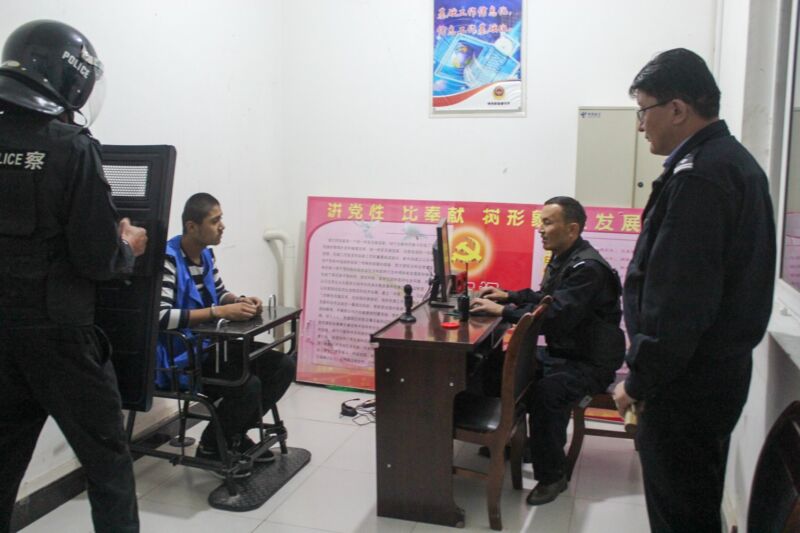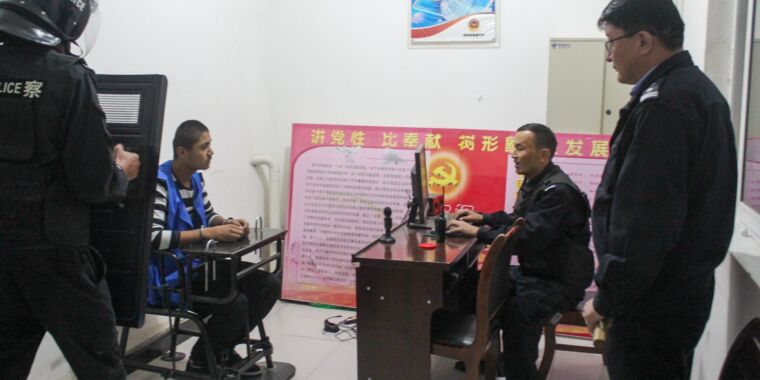
A hack on police servers in China’s Xinjiang region has yielded thousands of graphics and videos of Uyghur detainees suffering in detention camps in one of the grim stories yet of the ongoing humanitarian crisis caused by the persecution of ethnic minorities in the country.
The images are accompanied by training manuals, detailed police work schedules and instructions for guarding the camps. One document uses a euphemism to describe inmates: “If students don’t respond to warning shots and keep trying to escape, the armed police shoot to kill,” the BBC reported. Images show a prisoner in an iron torture device known as a tiger chair, which immobilizes the arms. Der Spiegel, one of the other outlets that published the installment of hacked photos and documents, said it partially confirmed their authenticity by analyzing GPS data included in some of the images.
“The material is unprecedented on several levels,” Dr. Adrian Zenz, director and senior fellow in China Studies at the Victims of Communism Memorial Foundation, who obtained the files and shared them with news outlets, wrote on Twitter. His thread gave a broad overview of the leaked material, including “high-level speeches implying top leadership and using blunt language”, “instructions for camp security, much more detailed than China Cables”. [that] describe heavily armed assault units with assault rifles on the battlefield,” and other evidence of Uyghur oppression by the Chinese government.
The material is unprecedented on several levels:
1. High-level speeches, involving top leaders and using blunt language2. Camp safety instructions, much more detailed than China Cables, describe heavily armed assault units with assault rifles on the battlefield pic.twitter.com/tQUSXJU0pF
— Adrian Zenz (@adrianzenz) May 24, 2022
Most images and documents are available on a dedicated site. Content includes images of 2,884 inmates, training images and Powerpoint documents for security exercises, and speeches and guidelines from top officials documenting Beijing’s knowledge and support of the camps and policies.
Little is known about the details of the hack that made the leaked items available. The BBC said only that: “The source of the files claims to have hacked, downloaded and decrypted them from a number of police computer servers in Xinjiang, before passing them on to Dr Adrian Zenz, a scholar at the US-based Victims of Communism Memorial Foundation, previously sanctioned by the Chinese government for its influential research into Xinjiang.”
The Chinese embassy in Washington, DC, issued a statement to the BBC saying, “Xinjiang-related issues are essentially about countering violent terrorism, radicalization and separatism, not human rights or religion,” and said the Chinese authorities had taken “a large number of decisive, robust and effective deradicalisation measures”. The statement added: “The local people lead safe, happy and fulfilling lives.”

